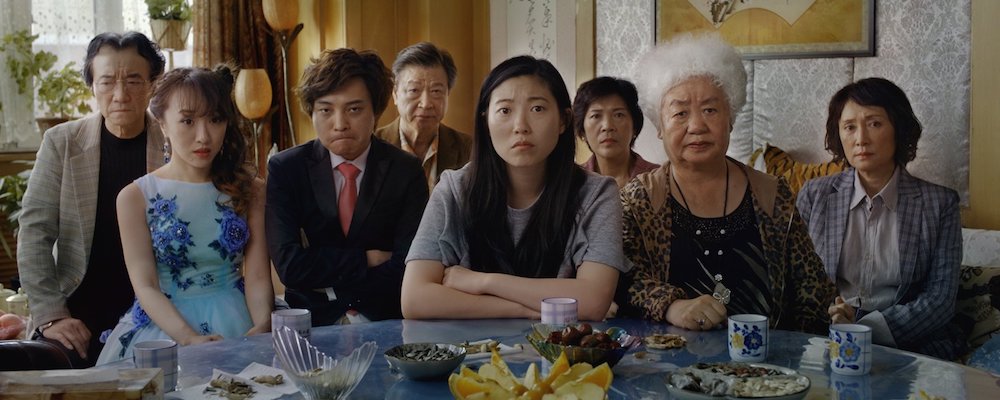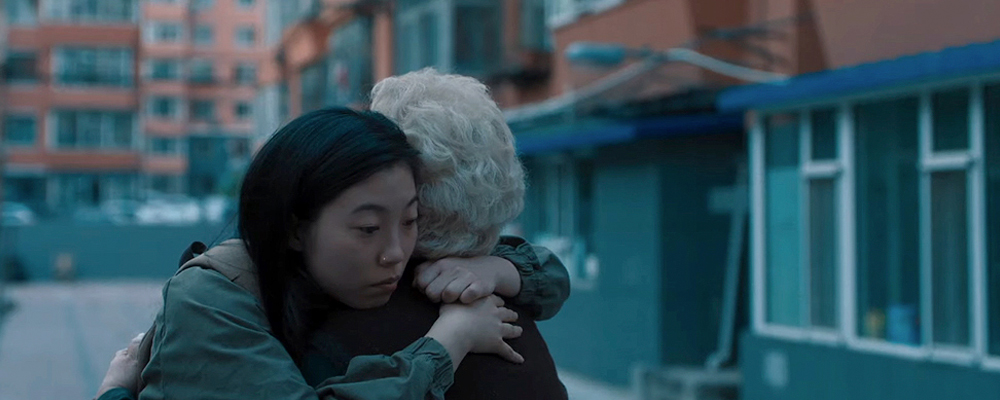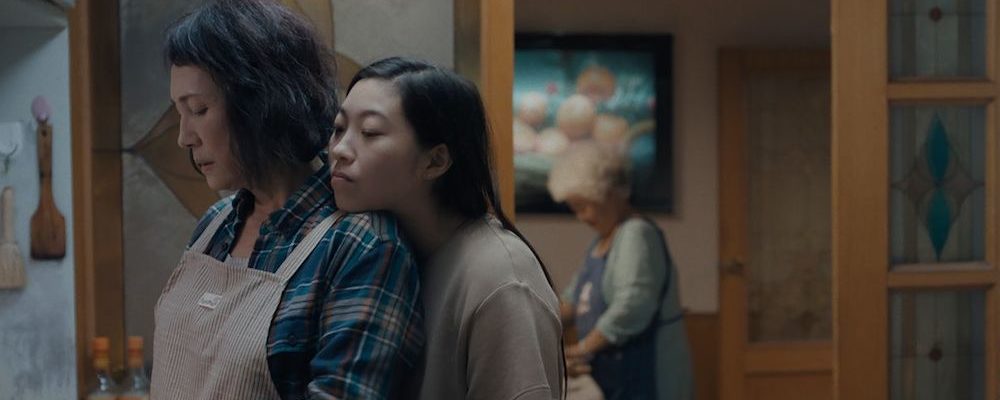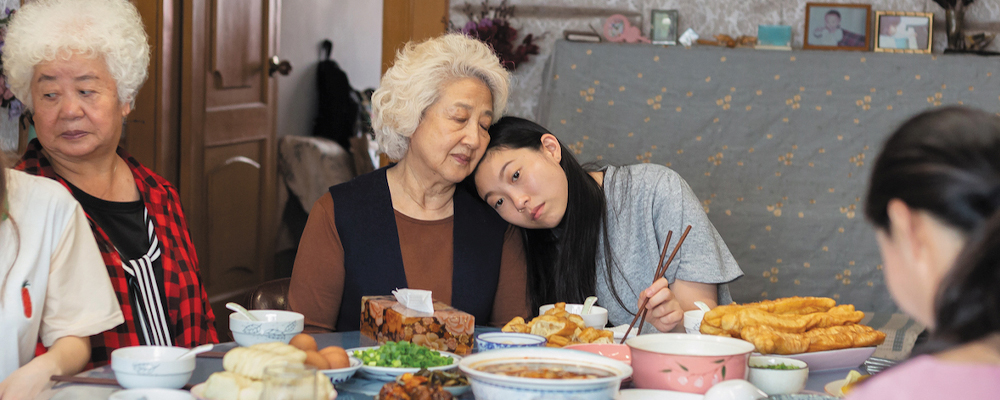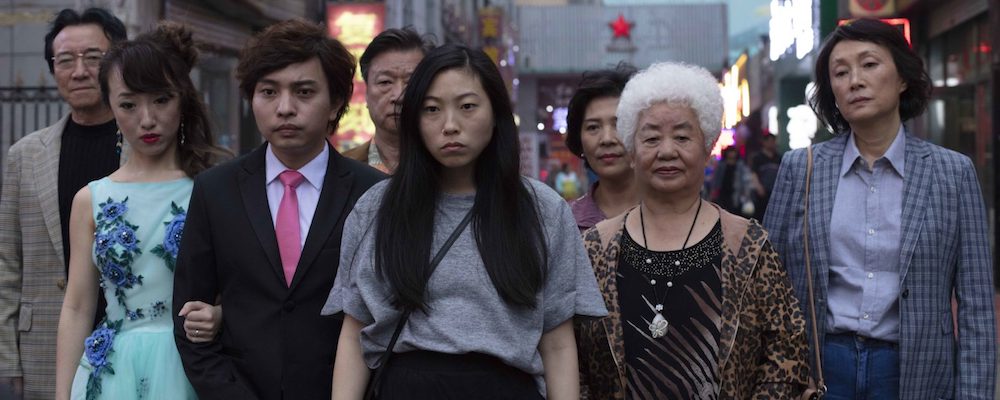Awkwafina Shines in Illuminating Family Drama ‘The Farewell’
Alci Rengifo
To be the child of immigrants can sometimes mean being pulled between two worlds. “The Farewell,” a thoughtful and absorbing indie drama, uses the simplest yet deepest of dilemmas to evoke director Lulu Wang’s personal observations of dealing with a cultural tradition that may seem jarring through American-tinted glasses. Written and directed with subtle humor, it’s one of those works of fiction that brims with biographical flourishes.
Awkwafina plays Billi, an aspiring New York artist who like most artists, is stuck trying to make rent while her family looks skeptically on. The child of Chinese immigrants, Billi has parents, Jian (Diana Lin) and Haiyan (Tzi Ma), who are supportive but ever worrying. And then Billi gets the worst possible news, her beloved Nai-Nai (Shuzhen Zhao), or grandmother, has cancer. Not only that, but the family has agreed to not tell Nai-Nai her diagnosis. Instead everyone will use the occasion of the wedding of Billi’s cousin to spend time as a family with the matriarch. For Billi it’s an astonishing, cruel decision. She flies to Changchun in China to meet up with the gathering family but feeling the weight of a guilty conscience. Her sense of guilt intensifies as she spends time with Nai-Nai, who is still so loving and full of aged wisdom. As the family explains to Billi the cultural reasoning behind their decision, she also faces scrutiny for her own life choices in the land of opportunity. Yet the whole journey also brings Billi back in touch with not only her family history, but the realization that we are deeply formed by our roots, even in ways we don’t suspect.
There were choices that could have made “The Farewell” into just another feel-good comedy or overwrought drama, but Wang is such a gifted writer and filmmaker that she knows how to make a story both enveloping and subtle. She reportedly based the story on a moment in her own life in 2013, while editing her debut “Posthumous.” Much of “The Farewell” has the feeling of complete authenticity precisely because it is culled from actual memories. Even the Chinese city used as the prime setting is the actual one where Wang’s own Nai-Nai lived and was diagnosed with a disease the family decided to keep secret. There is the intimate feeling throughout that we are fellow guests at the dinner table, as Nai-Nai gives out advice about taking it easy while everyone shares secretive glares. But the tone is never sinister. As the family explains to Billi, the idea is that if the family carries the burden of the diagnosis, then Nai-Nai is free to live out what time she has left with an eased mind, in oblivious happiness. Parents give so much for their children, why shouldn’t the grown children now give back in the form of psychological protection?
Wang uses this premise to explore wider themes about the immigrant experience, and how being raised in the United States with parents from abroad (as Wang was) means living with a unique duality. Billi is Chinese and knows the culture, but also feels out of place at times in China itself. For her parents it makes complete sense to keep Nai-Nai aloof about her health, but Billi is from the U.S., where such a practice would produce precisely the kind of judgmental attitude she expresses at first. The screenplay has moments of sharp social observations, like when Billi and her parents eat with snooty relatives who bemoan the loss of culture among Chinese Americans, yet admit they’re sending their own son to study in the United States. This material goes beyond relevance for just Asian audiences because the experience is the same for immigrant families from Latin America, the Middle East or anywhere else.
Every performance in “The Farewell” strikes a perfect note. Awkwafina, the rapper turned actress who has a string of hits behind her like “Ocean’s 8” and “Crazy Rich Asians,” reveals herself to be an artist of endearing, dramatic depth. It’s almost fitting that after being in a wildly entertaining romantic comedy like “Crazy Rich Asians,” she does another family-centric movie with a different tone. She’s playing the hungry artist here, but not in as a stereotype, and while she has moments of comedy, they’re moving and not slapstick. Shuzhen Zao is the luminous center of the film as Nai-Nai, playing the role like the grandmother we all wish to have. She’s rambunctious and unfiltered, doing her exercises every day and then making blunt observations. Wang’s own real great aunt, Lu Hong plays Nai-Nai’s sister with equal verve. One of the film’s great scenes is during the big wedding when some older guests recall being soldiers with Nai-Nai during a long ago war (we assume the Korean War), one even confessing he thought of professing his love for her at the time. It’s a wonderful moment about how we see the elderly and don’t always realize the magnitude of the lives they’ve lived.
The wedding itself is dark comedy mingled with striking drama. Everyone drinks too much, gossip and singing abound. When the family gathers for a group picture the groom starts to weep, aware of the secret everyone is holding close. It all goes to the heart of “The Farewell,” which is how every family is its own history. Wang never turns Nai-Nai’s diagnosis into a cheap plot point, even when she has comic, intense scenes as when the family bribes someone to alter clinical documents. Judgement is never passed on what the relatives are doing. Instead Wang is simply saying this is how things are with some families in China and for Billi it’s just part of a wider, personal journey.
“The Farewell” absorbs and uplifts without ever transforming into another, mundane group romp. Wang actually has a voice and has made a film that is a strong example of a director turning autobiography into illuminating fiction. After all, we all have a story to tell.
“The Farewell” opens July 12 in select theaters.

